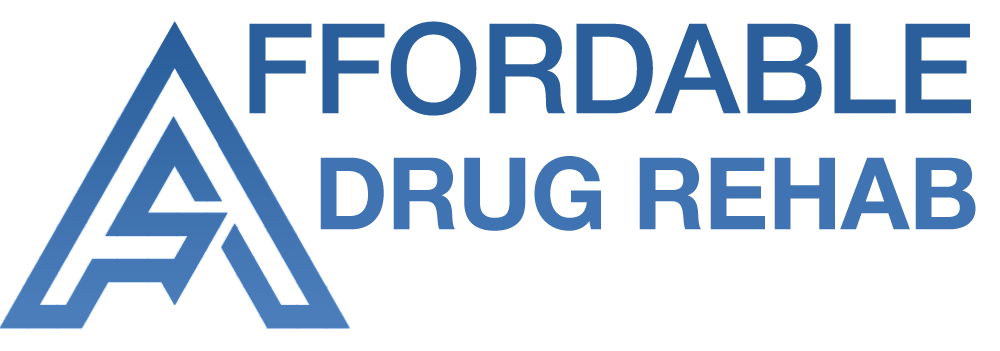When looking for cheap substance abuse treatment, our expert admissions team at Affordable Drug Rehab is here to help you find the perfect facility for recovery. We understand that rehab can be very pricy. Thats why we are here to offer cheap substance abuse treatment without sacrificing quality.
When addiction takes hold of a person, it not only inflicts a devastating toll on their health and wellbeing, but it also carries a steep financial burden. According to the National Survey on Drug Use and Health, nearly 20 million adults in the United States wrestled with substance use disorders in 2017 alone. Finding cheap substance abuse treatment can seem like an insurmountable challenge, leaving many to confront their struggles in solitude. But the reality is that there are options out there for those who feel trapped by a lack of financial resources.
Navigating the intricate landscape of substance abuse treatment while constrained by a limited budget doesn’t have to be a hopeless endeavor. This guide is crafted to walk you through an array of strategies and considerations that could serve as your lifeline to accessible care. By outlining key resources, such as insurance coverage, governmental aid, and community support programs, we aim to demonstrate that hope and affordable recovery solutions are within reach.
In the following exploration, we’ll address the common hurdles and provide actionable insights for anyone seeking affordable drug rehab. You will learn about various cost-effective treatment modalities, the intricacies of health insurance as it pertains to addiction therapy, as well as how to leverage community resources to finance your recovery. By the end of this comprehensive guide, you’ll be equipped to take proactive steps towards a sustainable, affordable path to rehabilitation.
Understanding the Financial Impacts of Addiction
Before plunging into the methods for securing cheap substance abuse treatment, it is crucial to understand the extent of the financial repercussions associated with addiction. The costs of substance abuse can be divided into direct expenses relating to the purchase of drugs, and indirect costs, which include healthcare, loss of productivity, and criminal justice expenses. The latter can be profoundly arduous for individuals and their families, potentially leading to bankruptcy and other severe financial strains.
- Direct Costs
Direct costs encompass the money spent on acquiring substances. This is a clear and tangible figure, but it’s just the tip of the iceberg. What many don’t realize are the indirect costs of addiction — those that go beyond payment for substances and carry a long-lasting impact on financial stability.
- Indirect Costs
These costs are often hidden or underestimated. They include productivity loss due to unemployment or underemployment, criminal justice system involvement, and the toll on family dynamics. The accumulation of these indirect expenses is often higher than the direct costs, exerting a persistent strain on personal and familial finances.
- The Collective Financial Toll
The financial burden of addiction is not isolated to the individual. Family members, employers, and taxpayers may all feel the residual effects in various ways. Substance abuse presents a costly public health challenge that strains national healthcare, social services, and criminal justice systems.
Leveraging Health Insurance for Treatment
One of the most valuable resources for funding rehabilitation is health insurance. The Mental Health Parity and Addiction Equity Act (MHPAEA) requires insurance providers to offer coverage for mental health and substance abuse treatment comparable to other medical services. By understanding your policy and the full extent of your coverage, you can significantly reduce out-of-pocket expenses for treatment.
- Types of Insurance to Consider
There are several types of insurance that may offer coverage for substance abuse treatment:
- Employee-provided health insurance
- Private insurance plans
- Medicaid
- Medicare
- State-funded insurance programs
- Affordable Care Act marketplace plans
These insurances can greatly help the cost of rehab.
- The Importance of In-Network Providers
When using insurance for addiction treatment, opting for in-network providers is crucial. These professionals or facilities have contracts with your insurance company, which can substantially reduce costs. Out-of-network providers may result in higher co-pays or coinsurance.
- Understanding Coverage Tiers
Many health insurance plans include different tiers of coverage. Depending on the details of your policy, different costs may be associated with different levels of care. For instance, inpatient services may have a higher co-pay than outpatient programs.
Exploring Government-Funded and State-Sponsored Programs
For individuals without adequate health insurance, government-funded programs and state-sponsored initiatives can be a vital resource. These programs are designed to provide access to addiction treatment regardless of the individual’s ability to pay.
- Medicaid
Medicaid is a state and federally funded program that aims to assist lower-income individuals in obtaining health care services. It often covers various forms of addiction treatment, including detoxification, therapy, and medication-assisted treatment (MAT).
- Medicare
Medicare serves individuals aged 65 and older, as well as those with certain disabilities. While Medicare doesn’t cover residential rehab stays, it does cover a broad range of outpatient services related to substance use disorders.
- State and Local Programs
Many states have programs that specifically address addiction within their healthcare system. These state-sponsored initiatives may offer sliding-scale fees, where the cost of treatment is adjusted based on the individual’s income.
- Non-Profit and Community-Based Treatment Options
Community resources and non-profit treatment centers can be a low-cost or even free option for those in need of rehabilitation. These facilities may offer various support services, including therapy, group counseling, educational programs, and aftercare services.
- Sliding Scale Fees
Many non-profit organizations and community clinics base their fees on a sliding scale, making treatment more affordable for those with lower incomes. These facilities often take into account an individual’s ability to pay, ensuring that financial barriers do not prevent access to care.
- Local Support Groups and 12-Step Programs
Support groups like Alcoholics Anonymous and Narcotics Anonymous can be a pillar of recovery, extending a network of peers who understand the struggle of addiction. These groups operate on the principle of mutual aid, offering accessible and judgment-free support.
- Faith-Based Organizations
Faith-based organizations sometimes offer substance abuse treatment and recovery programs at little to no cost. While participation may require a commitment to the organization’s philosophy, these programs can be highly effective for some individuals.

Low-Cost Private Treatment Options
While private treatment facilities are frequently associated with high costs, many establishments offer cheap substance abuse treatment options. Some facilities may be willing to negotiate rates or create payment plans tailored to your financial situation.
- Researching Affordable Providers
Using the internet and other resources, you can research and contact private treatment facilities to inquire about their pricing and potential financial assistance. Some facilities may offer discounts for paying in full or for choosing certain treatment programs.
- Applying for Scholarships or Grants
Some private treatment centers provide scholarships or grants to individuals who qualify, offering them the chance to receive care at a reduced rate or for free.
- Crowdfunding and Fundraising
In instances where financial resources are extremely limited, crowdfunding platforms can offer a way to raise money for treatment. Family, friends, and even community members can contribute to help cover the costs of rehabilitation.
Planning and Budgeting for Treatment
Considering the financial implications of addiction recovery, it is essential to plan and budget accordingly. By taking a structured approach to finance your treatment, you can better manage the associated costs and align your recovery efforts with your financial capabilities.
- Creating a Comprehensive Recovery Plan
A comprehensive recovery plan should account for treatment costs, as well as ongoing care and recovery support. By working with a recovery coach or a financial counselor, you can establish a plan that encompasses all aspects of your rehabilitation.
- Identifying Your Financial Resources
Gather all your financial resources, including income, savings, assets, and potential contributions from family members. Each resource can contribute to the overall funding of your treatment.
- Reducing Non-Essential Expenses
Examining your expenditure and cutting back on non-essential expenses can help you save money for your treatment. This may involve temporary lifestyle adjustments, such as canceling subscriptions, dining out less, or finding more cost-effective alternatives for daily expenses.
The Role of Employment and Income Assistance
Steady employment not only provides a regular income stream but can also offer access to employee benefits, such as health insurance and paid leave. For those currently unemployed, income assistance programs can provide a critical lifeline.
- Seeking Employment Opportunities
Exploring job opportunities, whether traditional or temporary, can help generate income to fund treatment. Many employers are willing to work with individuals who are committed to their recovery, offering flexible work arrangements and support.
- Government Income Assistance Programs
Programs such as Temporary Assistance for Needy Families (TANF) and Supplemental Nutrition Assistance Program (SNAP) provide financial assistance to low-income individuals and families. These benefits can be used to cover living expenses, freeing up money to pay for treatment.
- Applying for Employment Support Services
Employment support services, available through government agencies and non-profit organizations, can help you secure a job, improve your earning potential, and attain financial stability. These services often include job-search assistance, resume building, and skills training.
Personal Loans and Payment Plans
When other funding avenues fall short, personal loans and payment plans offered by treatment facilities can be a viable way to cover the costs of rehab. While taking on debt should be approached with caution, it can serve as an effective short-term solution for those who need immediate care.
- Researching Loan Options
Before pursuing a personal loan, it is crucial to research and compare different lenders to find the most favorable terms. Look for lenders that specialize in medical loans or offer low-interest rates for individuals with good credit.
- Negotiating with Treatment Facilities
Communicating openly with the administration of your chosen treatment facility can yield flexible payment arrangements. Many facilities are willing to work with clients to create affordable payment plans that alleviate the immediate financial burden.
- Exploring Financial Counseling
Financial counseling can provide clarity and expert advice on the best course of action for funding your rehabilitation. By working with a financial counselor, you can explore all your options and make informed decisions about your financial health.
Dual-Diagnosis Treatment and Its Financial Considerations
Many individuals with substance abuse disorders also face co-occurring mental health conditions, known as dual diagnosis. This complex situation can add layers of expense and may require specialized treatment services.
- Understanding the Need for Integrated Care
An integrated treatment approach that addresses both addiction and mental health is often the most effective. While this can lead to a more comprehensive treatment plan, it may also increase costs, making affordability an even more pressing consideration.
- Leveraging Insurance Coverage for Dual Diagnosis
Many insurance plans, including Medicaid and Medicare, cover dual diagnosis treatment. By understanding the nuances of your insurance coverage, you can minimize expenses related to co-occurring disorders.
- Exploring Grants and Special Programs
Grants and special programs available for individuals with dual diagnoses can help offset the costs of treatment. Be sure to inquire with potential treatment providers about available resources tailored to your unique situation.
Aftercare and Ongoing Recovery Management
Completing a rehabilitation program is just the beginning of the recovery process. Aftercare and ongoing recovery management are critical for maintaining sobriety. While these services may incur additional expenses, they are an indispensable part of your ongoing recovery.
- Exploring Cheap Aftercare Options
Aftercare can take various forms, including outpatient therapy, support groups, and sober living facilities. Research cheap aftercare options to continue receiving support without a substantial financial commitment.
- Accessing Community Support Services
Community support services, such as state-sponsored recovery programs and local community centers, can often provide aftercare at little to no cost. These services leverage the power of community to provide ongoing support for individuals in recovery.
- Creating a Sustainable Support Network
Building a sustainable support network can offer ongoing assistance in managing the financial aspects of your recovery. Family, friends, sponsors, and peers in recovery can provide guidance, accountability, and assistance in navigating resources.
Reach Out Today
The path to recovery from addiction is one filled with challenges, but financial obstacles should not be the reason individuals forego seeking help. By understanding the resources available, including health insurance, government programs, community support, and cheap substance abuse treatment options, you can forge a way forward that is both feasible and sustainable.
At Affordable Drug Rehab, we are dedicated to helping individuals find treatment that does not compromise on quality and effectiveness. Our approach focuses on customizing programs to meet the unique needs and financial circumstances of each client. If you or a loved one is struggling with addiction, do not hesitate to reach out for support. Remember, the journey to recovery begins with a single step, and that first step can be more affordable than you think. To find out more about our low-cost substance abuse treatment options, contact us today. Give us a call at 1 (888) 850-3656 or visit our website at www.affordabledrugrehabs.com.


